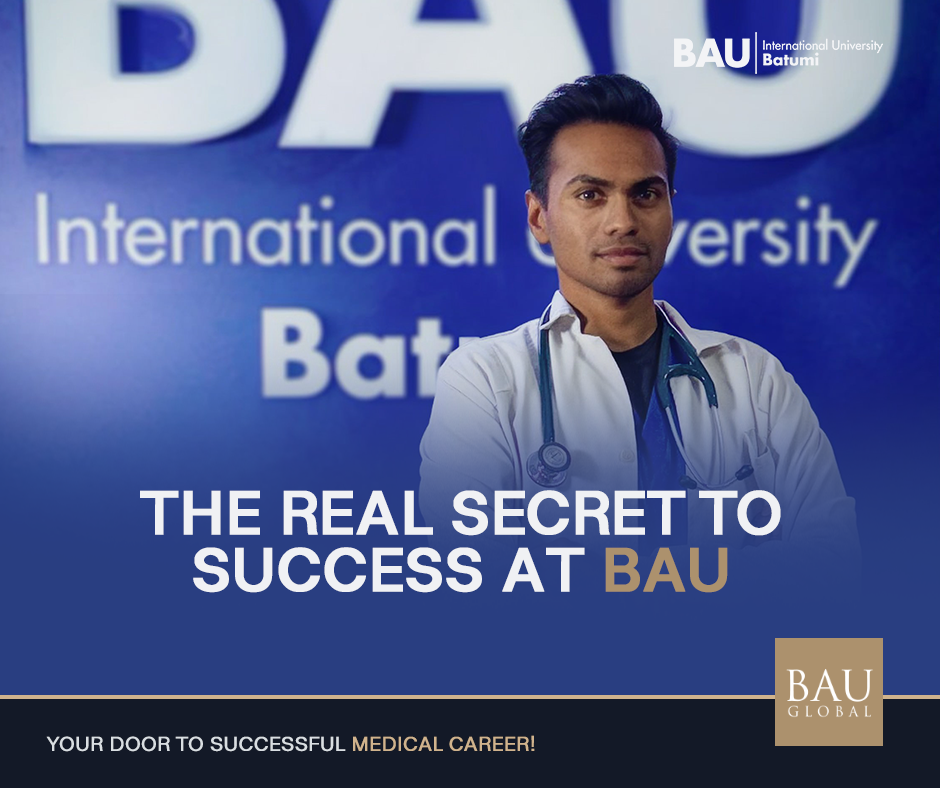
As an international student at BAU, studying in regional Georgia can feel daunting. The city isn’t like the typical YouTube vlogs you might watch about student life in Tbilisi. Batumi carries its own unique “middle child” vibe—a city still trying to define its place, working to become a leading resort while transitioning from its post-Soviet past into a pre-EU future. It leaves you wondering: how do you fit into a city that is itself learning how to stand on its own?
This blog is written as a short, comedic post-mortem reflection on how I managed to succeed, with the hope of easing some of the challenges you might face. Ask any BAU alumnus and they will gladly share their survival stories—often filled with tales of blood and sweat, though usually told with a touch of exaggeration.
It all begins with the biggest question: What is your purpose at BAU Batumi? The answer has always been simple—to become a doctor! We each arrived with our own backgrounds, bringing along origin stories that could rival the Marvel Cinematic Universe.
For me, success came through a mix of presence, language, and possibility. Showing up consistently—in body and in mind—proved to be one of the most underestimated yet powerful tools. Those who failed to take it seriously often faded into the background, struggling to pass by pleading for extra points. Meanwhile, being present in every class, engaging with teachers and doctors, and taking initiative created opportunities that shaped my learning journey.
Another lesson that defined my time here was the importance of learning Georgian. While no one expected fluency, being able to navigate not just clinical interactions but also everyday life in Batumi made a world of difference. Whether it was chatting with locals or negotiating with Bolt taxi drivers shouting their colorful vocabulary, those efforts to speak Georgian earned respect and built genuine connections. Even when clinicals felt less interactive or hands-on than expected, proactive participation helped bridge the gap.
And then there were the possibilities. Not every university activity appealed to me, but instead of complaining, I realized that I could create opportunities of my own. Whenever an idea struck, I would write it down, talk it over with friends, draft a plan, and approach the university for support. The only caution, of course, was not to dream up something so extravagant that it would take Elon Musk to sponsor it.
Ultimately, success at BAU isn’t just about earning a degree. It’s about being an active participant in your own education—about showing up, building connections, and proving that you are committed to learning medicine with purpose. It’s about leaving an impression that lasts long after you’ve graduated. That, more than anything else, is how you truly succeed at BAU.
Dr Uthayakumar Anandamohan
BAU Alumni Cohort 2025
